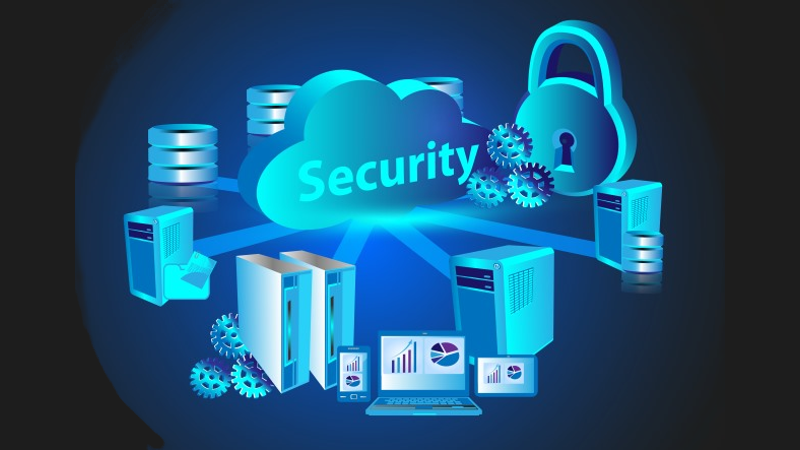
A smart data strategy will power your embedded analytics forward
Let’s get real about real-time data.
We are reminded daily how real-time data makes business decisions easier. Timing is essential. Yet still overlooked in the need for real-time data is operationalizing the data itself. Timely data is just part of the equation. Being able to glean actionable insights in a timely manner is the other part. According to research by Enterprise Strategy Group, 38 percent of IT and business professionals say complexity and usability issues with their business intelligence platform is a challenge.

Download Windows 11's stunning wallpapers now
Yesterday, Microsoft’s successor to Windows 10 got leaked onto the web, revealing that it would indeed be called Windows 11, and showing off a new look that owes a lot to the cancelled Windows 10X.
The look of the new OS, with its centered taskbar and Start menu, is clearly going to be a bit divisive, but one thing most of us can agree on is the default wallpapers look great. And you can give your Windows 10 system a Windows 11 makeover by installing them now.

Unsuccessful tech projects get axed during the pandemic
Research from London-based digital agency Studio Graphene shows that digital transformation during the pandemic hasn't been all success stories.
The survey of 750 decision-makers within UK businesses finds the majority (56 percent) have successfully adopted one or more new technologies since the beginning of the pandemic, with 54 percent saying that using new tech has been key in enabling them to overcome challenges posed by COVID-19.

Could the 'Face of Anonymous' go to jail?
We’ve seen the now infamous Guy Fawkes masks around for a long time. More so a few years ago, than in current times. The main group they belong to, 'Anonymous', has a reputation as hackers but members aren’t the people shutting down gas lines or airlines -- they prefer to think of themselves as ethical. Hacktivists if you will. You may disagree, authorities certainly do, and many members have been arrested.
A decade ago member Christopher Doyon was nabbed in San Francisco. He allegedly jumped bail and headed south of the border, where he has remained ever since. Producer Gary Lang traveled there and featured him in the Canadian documentary 'The Face of Anonymous' in 2020.

Three-quarters of IT leaders think organizations are more vulnerable to mobile attacks
A survey of over 600 IT decision makers across the US, UK and Australia finds that 76 percent believe end users are more at risk from attacks on mobile devices than they were a year ago.
The study from Menlo Security also shows 53 percent admit that it's not possible to be prepared for all the tactics and strategies used by attackers targeting mobile devices. And, more than a third (38 percent) claim that it's impossible to keep up with the pace of these attacks.

Open source platform aims to boost cloud-native deployments
Many digital transformation initiatives have been boosted by the pandemic, but they are still too often held back by a shortage of the technical skills needed to deliver them.
Now though open source company WSO2 is launching Choreo, a new integration platform as a service (iPaaS) for cloud native engineering.

New platform lets businesses assess their ransomware attack readiness
Automated security validation company Pentera has launched a new module for its platform that emulates the world's most destructive ransomware strains.
It shows CISOs exactly how attackers and ransomware threats will exploit their network and infrastructure, safely automating real adversary tactics and techniques inside the network.

Businesses are confused about SASE -- but want to adopt it anyway
The adoption of Secure Access Service Edge (SASE) has increased during the pandemic, with 34 percent of businesses claiming to have adopted SASE in the past year, and an additional 30 percent planning to do so in the next six to 12 months.
But despite this rapid uptake the majority (69 percent) of IT and security professionals surveyed by Versa Networks remain confused about what SASE actually is.

Businesses that pay ransoms are more likely to suffer second attacks
A new study shows that 80 percent of businesses that chose to pay a ransom demand have suffered a second ransomware attack, often at the hands of the same threat actor group.
The research from Cybereason also reveals that of those that opted to pay a ransom demand in order to regain access to their encrypted systems, 46 percent report that some or all of the data was corrupted during the recovery process.

Microsoft confirms that KB5001391 update is making Windows 10 blurry
The tech world might be excitedly looking forward to the imminent release of Windows 11, but in the meantime we have to make do with Windows 10 and its various issues. This means having to contend with the problematic update Microsoft keeps pushing out, and the company has just confirmed an issue with a recent mandatory update.
Microsoft says that the KB5001391 update is causing some people's displays to show blurry text in the new News and Interests section of the taskbar. For some people, however, the problems spread wider.

Download Ubuntu-based Linux Mint 20.2 'Uma' Beta with Cinnamon, MATE, and Xfce
Linux Mint is an operating system based on Ubuntu. The distribution comes with some interesting tweaks that many users appreciate, making it a popular choice in the Linux community for both beginners and experts alike. It is stable, easy to use, and has a well-designed Update Manager that puts many other distros to shame. Linux Mint is a joy to use.
Last month, we told you that Linux Mint 20.2 would be named "Uma." At the time, we shared the Uma Beta would be released in the middle of June. Well, folks, today is June 15 and guess what? You can download Linux Mint 20.2 Beta immediately!

Should you download Microsoft Windows 11?
Earlier today, after weeks of rumors, Windows 11 leaked to the web. No, I don't just mean images and videos were shared early -- the actual operating system itself became available for download! It is a bootable ISO file. This not only confirms what the next version of Windows will be called, but it made it possible for anybody to install the operating system early.
While you can download Windows 11 right now, the real question, of course, is should you do it? Before we discuss the morality of doing so, let's be very clear -- it is foolish to download and install a closed source operating system from non-official sources. Obviously, if you aren't getting it from Microsoft directly, it could be full of malware and other bad stuff.

How advanced analytics can help law enforcement and security organizations overcome cryptocurrency challenges
In today’s hectic news cycle, there always seems to be a new story angle that is focused on cryptocurrency. The increasingly popular digital currency’s market value recently reached $2 trillion for the first time and the Coinbase IPO was referred to as "crypto’s coming-out party." But, just as cryptocurrencies are gaining traction with consumers as legitimate transactions, they are also massively used by criminal actors and terrorists, with a global total of $10 billion in illicit activities in 2020.
Though technology has helped to advance industries and markets tremendously, it is clear that advanced technology has also played a part in illegal activities around the world. We are witnessing a drastic shift from the traditional financing of criminal and terror actors to a new world of digital financing, creating a seriously daunting task for security and law enforcement organizations to anticipate, track and identify illegal activities.

Moving to the cloud? A look at enterprise security considerations
Of the technologies that saw a spike due to the pandemic, cloud-based services are experiencing a bump in enterprise sales. The enterprise previously had been trailing scrappy upstarts in terms of digital transformation, largely because of the complications associated with moving tens of thousands of endpoints into a new environment. With entire workforces shifting to work-from-home environments, though, movement to the cloud has become all but inevitable.
According to IDC, digital transformation in the enterprise has accelerated since the start of the pandemic as enterprises seek greater flexibility and cost efficiency. Yet, enterprise security teams are posing a slew of new questions to cloud vendors about the security of their offerings. Best case scenario, this adds time to an already lengthy buying cycle. Worst case, security practices and protocols can kill a contract.

5 simple steps to prevent cloud overspend
There are several drivers that have fueled the surge in cloud usage globally. Businesses are recognizing that the cloud provides a level of flexibility that in-house environments cannot match. Cloud makes it easy to scale up and down quickly and efficiently with nearly unlimited resources. Adding capacity to an enterprise system can often take days in an on-premises data center, if there is capacity, but can be accomplished in minutes in the cloud.
As we have witnessed over this past year, with a sudden need to work from home, cloud rescued many enterprises by providing an abundance of resources quickly. It empowered millions of employees to work from home when circumstances were not conducive to work from their office. Therefore, it's not surprising to see the report from Research and Markets forecasting the global cloud computing market to reach $832.1 billion by 2025. However, with increased cloud usage comes the challenge of managing that consumption and avoiding overspend.



